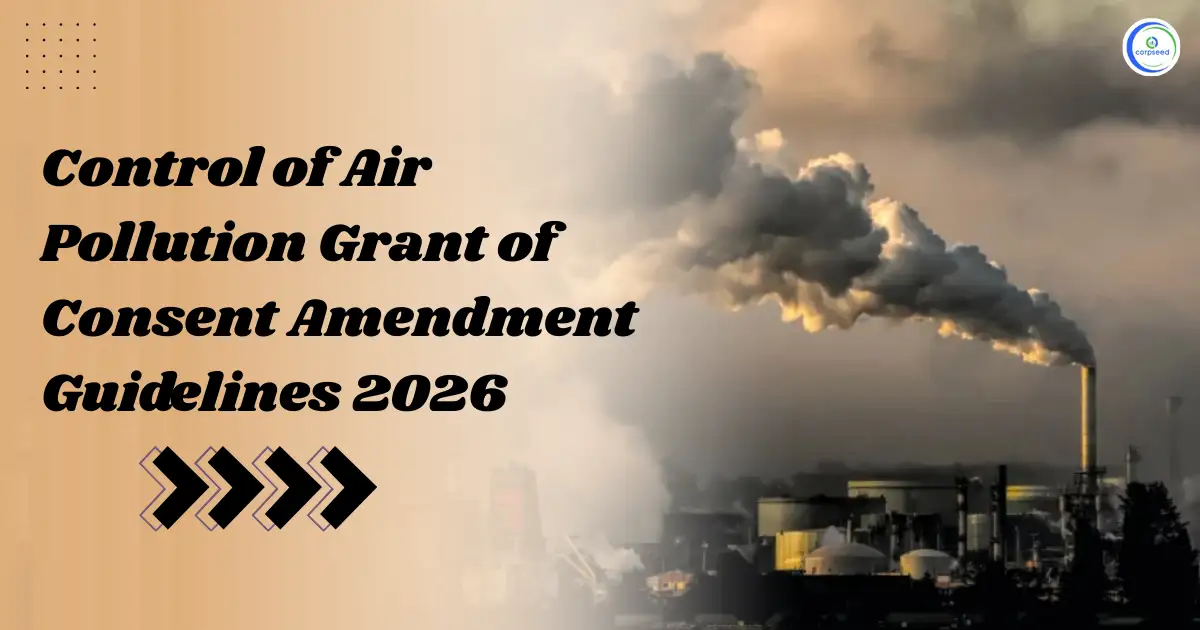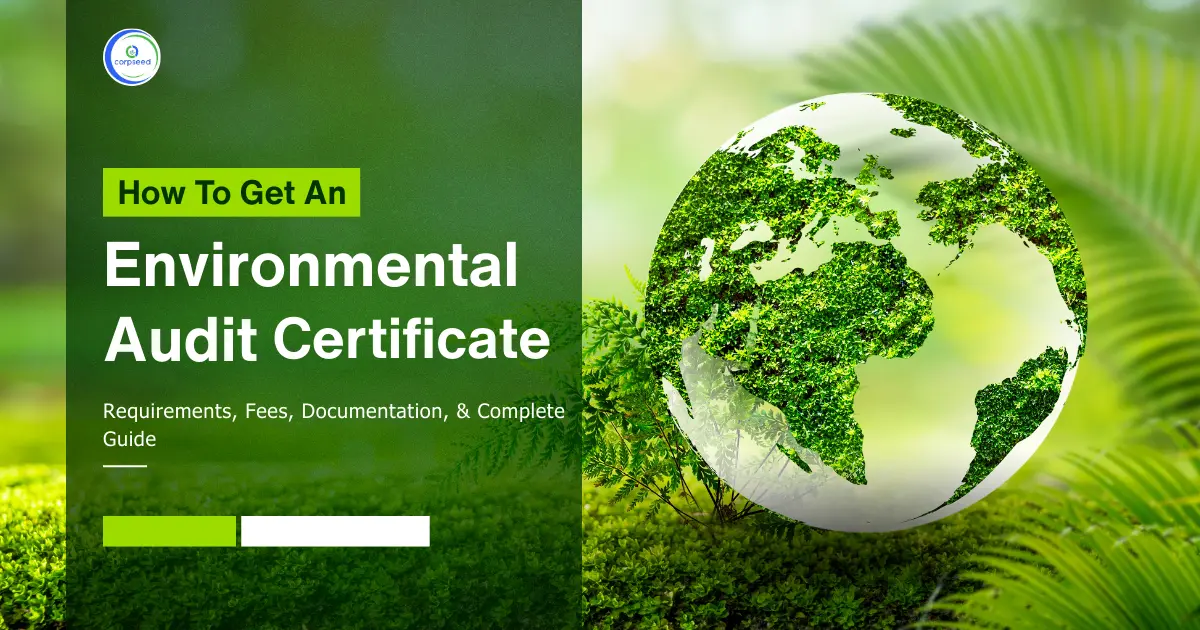Introduction: Ministry Of Environment Forest And Climate Change (MoEFcc) Notice
The environment-related regulations are very sensitive as they prescribe the methods to fight the causes that have the potential to wipe off life from the planet. Even a slight mistake can put us many years back in the timeline. The problems we are facing today originated years ago. Our lethargic and ignorant strategies against climate change rank us lower when it comes to our performance to fight global warming and climate change. Considering these stats the government is rigid in terms of the implementation of waste management rules. The authorities are issuing notices to the industries that do not comply with the environmental laws and when necessary, they also shut down the businesses by exercising the power they got from various statutory provisions.
Table of Contents
- Ministry of Environment Forest and Climate Change
- Objectives of MoEFCC
- Authorities Associated with MoEFCC
- Statutes Involved With the MoEFCC
- Powers to Issue Notices or Give Directions
- Reasons for Issuing a Notice
- How to Reply to the Notices?
- Use of Email as a Medium of Communication
- Standard Format of A Reply
- Conclusion
--------------Blog Contact Form-------------
Ministry of Environment Forest and Climate Change
The Ministry of Environment, Forest and Climate Change (MoEFCC) plans, promotes, co-ordinates and oversees the implementation of India’s policies concerning the environment and forests. These programmes include United Nations Environment Programme (UNEP), South Asia Cooperative Environment Programme (SACEP) etc. and other issues relating to multilateral and regional bodies like Commission on Sustainable Development (CSD), Global Environment Facility (GEF) and South Asian Association for Regional Cooperation etc. This is a nodal agency in the administration of the Central Government.
Objectives of MoEFCC
The major objectives of the Ministry of Environment, Forest and Climate Change include-
- To survey and conserve the country's flora, fauna, forests and wildlife.
- To prevent and control pollution in the country by making rules and implementing them.
- To regenerate the degraded areas through afforestation or any other means possible.
- To protect the environment from any factors that are causing harm and degrading the natural structure of the environment.
- To ensure the protection and welfare of the animals by implementing appropriate rules and taking supportive measures.
Authorities Associated with MoEFCC
For the management of tasks concerning environmental protection and assisting the Ministry of Environment, Forest and Climate Change to complete its objectives, there are various bodies constituted under the environmental laws of India. The Central Pollution Control Board (CPCB) manages Pollution related issues at the central level and coordinates with other State Pollution Control Boards (SPCBs) of the country. The SPCB performs tasks similar to CPCB but at the state level. These boards are responsible for monitoring and regulating the pollution-causing industries. Apart from these, there are various other bodies subordinate to MoEFCC including the Animal Welfare Board of India, Botanical Survey of India, Forest Survey of India, Zoological Survey of India and National Board of Wildlife; which also help it to accomplish its objectives.
Statutes Involved With the MoEFCC
Many statutes empower the ministry to perform different tasks and fulfil its responsibilities. One of them is to make rules. So the ministry makes rules, constitutes other bodies and empowers them on its behalf to perform duties. For example, the Environment Protection Act, Air Act, and Water Act conferred powers to give directions to the Central Pollution Control Board for the subjects mentioned in the act. Apart from the statutes, there are policy frameworks that also guide the way for MoEFCC. The objectives mentioned and procedures described in the policy frameworks are utilised by the ministry to direct the relevant authorities to take action and fulfil their part to achieve a specific object of the policy.
Powers to Issue Notices or Give Directions
The statutes related to the environment and pollution control prescribe that the central government can delegate its power to give directions on the boards. As the domain falls under the jurisdiction of the Ministry of Environment, Forest and Climate Change, the powers to give directions or issue notices to the offending industries also go to the Central Pollution Control Board on behalf of the ministry. It issues notices and gives directions in matters where the State Pollution Control Board has used its powers and further intervention is needed and in interstate matters, while on lower levels SPCB issues notice for industries and ask them to reply. Based on the replies received by the industries it takes further action or dismisses the notice. These are mainly sent when the proprietor lacks authorisation or some registration regarding the business he is operating.
Reasons for Issuing a Notice
In case you have received any such notice, it is because you have overlooked a pollution control guideline while operating your unit. You may have not obtained the necessary registration for your unit. The guidelines prescribed in the waste management rules apply to all units involved in the production, storage, transport, processing or disposal of any kind of regulated waste. And anything can go wrong with it including the machines used, the standard of the processes involved, unit layout, discharge of pollutants, maintenance of records, submission of reports etc.
How to Reply to the Notices?
In any of these cases, the notice can be issued by the appropriate authority - SPCB at the state level and CPCB at the central level. The notices issued by the Ministry of Environment, Forest and Climate Change are mainly for the regulating authority to take action in case they do not or to issue directions regarding some procedure. For example, if there is a need of developing an SOP to standardise a procedure, it issues notice to all SPCBs and PCCs in the country. Otherwise, the notices received by the industries from CPCB are equivalent to the notice received from the central government as CPCB is acting on the central government’s delegated powers.
These notices contain the material information at the bottom about the directions issued to you and the time limit in which you should reply to that notice. First, extract the direction given to you and draft your reply. It should be in a standard format. Based on the case which differs from one to another, you should count every point mentioned in the notice against you. You should cover all these points in your reply. You should mention the supplementary evidence in the reply and attach the same with it. This evidence may be the documents supporting your arguments and any media to prove a point you described.
Use of Email as a Medium of Communication
The reply has to be filed in the manner prescribed but if there are no such directions in this regard then it can also be submitted online through electronic mail. Especially when you need to obtain certain information or to submit progress made so far, you can use e-mail for expeditious communication. For example, if there is a delay in the performance of the actions as prescribed in the notice then before sending the reply of confirmation regarding the said acts, you can inform it via e-mail that the actions are in progress. E-mail is also a convenient way to submit media evidence like the certifications, authorisation or registration certificates that support the contents of your reply.
Standard Format of A Reply
The standard format contains six major parts including the address of the recipient, the subject of the reply, references of previous communications if any, the text of your reply, supporting documents and the regards at the end. The subject of the reply shall be following the subject of the notice received. The reply can be in pointers or a table format. The table format reply is suitable for notices that involve many questions. For example if in the notice, the board asked you ten questions to answer then you can use a table to write answers to all those questions one by one separately. On the other hand, you can use pointers if you want to mix things up for better justification.
Conclusion
You should be aware of any attached compliance with your business and in case you need, you can obtain the services of an expert. If you are producing plastic waste and don’t have EPR Authorisation, it will lead you to legal trouble. It is very important to follow every guideline relating to the protection of the environment and pollution control. You should ensure environmentally safe and sound operations of your business. Apart from the physical ground, you should also prepare on the procedural ground. The documentation for your business should not lack to any extent. The major documents that you should avail for the establishment of your business are EPR Authorisation, State Consents, EPR Obligations of the Producers, and Environmental Clearances. These are necessary for all industries that affect the environment in any manner and are regulated by related laws.
This portion of the site is for informational purposes only. The content is not legal advice. The statements and opinions are the expression of author, not corpseed, and have not been evaluated by corpseed for accuracy, completeness, or changes in the law.
BOOK A FREE CONSULTATION
Get help from an experienced legal adviser. Schedule your consultation at a time that works for you and it's absolutely FREE.


.webp)






